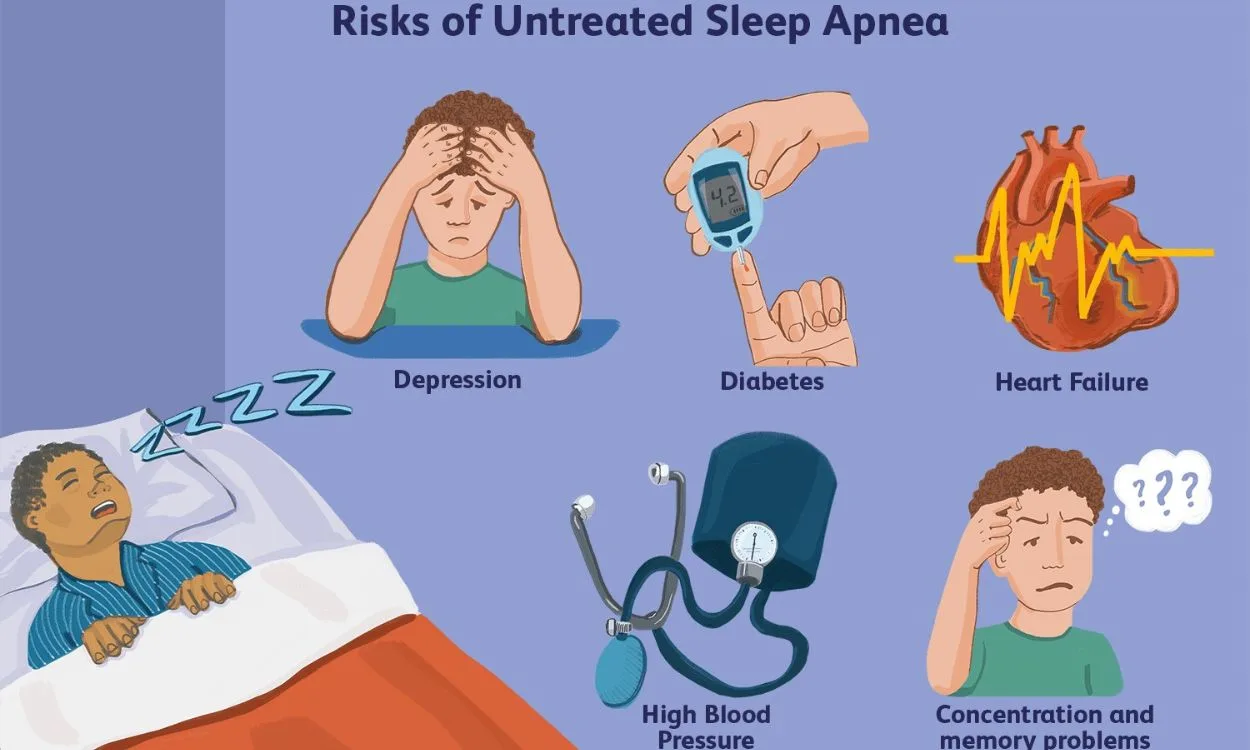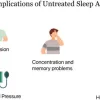Can Sleep Apnea Affect Heart Health?
Sleep apnea is a common sleep disorder characterized by pauses in breathing or shallow breathing during sleep. These pauses can last for a few seconds to minutes and may occur multiple times throughout the night. Sleep apnea can have various effects on the body, and one area that can be significantly impacted is heart health. In this blog, we will explore the relationship between sleep apnea and heart health and understand why managing sleep apnea is crucial for maintaining a healthy heart.
1. Understanding Sleep Apnea
Sleep apnea can be classified into three main types:
- Obstructive Sleep Apnea (OSA): This is the most common form of sleep apnea, where the airway becomes partially or completely blocked during sleep due to relaxation of the throat muscles.
- Central Sleep Apnea (CSA): This type occurs when the brain fails to send proper signals to the muscles that control breathing during sleep.
- Complex Sleep Apnea Syndrome (CSAS): Also known as treatment-emergent central sleep apnea, this type is a combination of both obstructive and central sleep apnea.
Regardless of the type, sleep apnea disrupts the normal sleep cycle, affecting the quality of sleep and leading to various health complications.
2. The Link Between Sleep Apnea and Heart Health
Sleep apnea can have a significant impact on heart health due to several factors:
- Intermittent Hypoxia: During episodes of sleep apnea, the pauses in breathing result in decreased oxygen levels in the blood. This condition is known as hypoxia. The repeated cycles of hypoxia followed by reoxygenation put stress on the cardiovascular system, leading to various cardiovascular problems.
- Increased Blood Pressure: Sleep apnea can cause a rise in blood pressure, especially during episodes of apnea. The oxygen deprivation and the activation of the body’s stress response lead to increased sympathetic activity, resulting in elevated blood pressure levels.
- Inflammation and Oxidative Stress: Sleep apnea has been associated with increased inflammation and oxidative stress in the body. These factors contribute to the development and progression of cardiovascular diseases.
- Cardiac Arrhythmias: Sleep apnea can trigger irregular heart rhythms, such as atrial fibrillation, due to the fluctuations in oxygen levels and the stress placed on the heart.
- Heart Failure: The combination of sleep apnea and pre-existing heart conditions can worsen heart failure symptoms and lead to more frequent hospitalizations.
3. The Importance of Managing Sleep Apnea for Heart Health
Recognizing and managing sleep apnea is crucial for maintaining a healthy heart. Here are some steps individuals can take:
- Seek a Medical Evaluation: If you suspect you may have sleep apnea or experience symptoms such as loud snoring, daytime sleepiness, or morning headaches, it is essential to consult a healthcare professional. They can conduct a sleep study to diagnose sleep apnea and recommend appropriate treatment options.
- Continuous Positive Airway Pressure (CPAP) Therapy: CPAP therapy is a common treatment for sleep apnea. It involves wearing a mask over the nose or mouth during sleep, which delivers a continuous flow of air to keep the airway open. Using CPAP can improve sleep quality and alleviate the strain on the heart.
- Lifestyle Modifications: Certain lifestyle changes can complement medical interventions for sleep apnea. These may include maintaining a healthy weight, exercising regularly, avoiding alcohol and sedatives before bedtime, and sleeping in a position that promotes proper airway alignment.
4. Fitpaa: Your Partner in Heart Health
At Fitpaa, we understand the importance of managing sleep apnea for heart health. Our comprehensive wellness platform offers personalized guidance and support to help individuals achieve their health and fitness goals, including managing sleep-related disorders like sleep apnea.
With the Fitpaa app, you can:
- Track Sleep Quality: Monitor your sleep patterns and identify any disturbances or irregularities that may indicate sleep apnea.
- Access Expert Support: Consult with our team of nutritionists, fitness coaches, and doctors who can guide you on managing sleep apnea and improving heart health.
- Follow Customized Plans: Receive a personalized Fitpaa Capsule tailored to your specific needs, including lifestyle modifications and exercises that promote better sleep and heart health.
- Get Real-Time Guidance: The Fitpaa app provides real-time guidance to help you maintain a healthy lifestyle, stay motivated, and track your progress.
By incorporating Fitpaa into your routine, you can take proactive steps towards managing sleep apnea and improving your heart health. Download the Fitpaa app today and embark on your journey towards a healthier heart and overall well-being.
Remember, a good night’s sleep is not only essential for feeling refreshed and energized but also plays a vital role in maintaining a healthy heart. Take charge of your sleep apnea, prioritize your heart health, and experience the joy of a well-rested body and mind.









